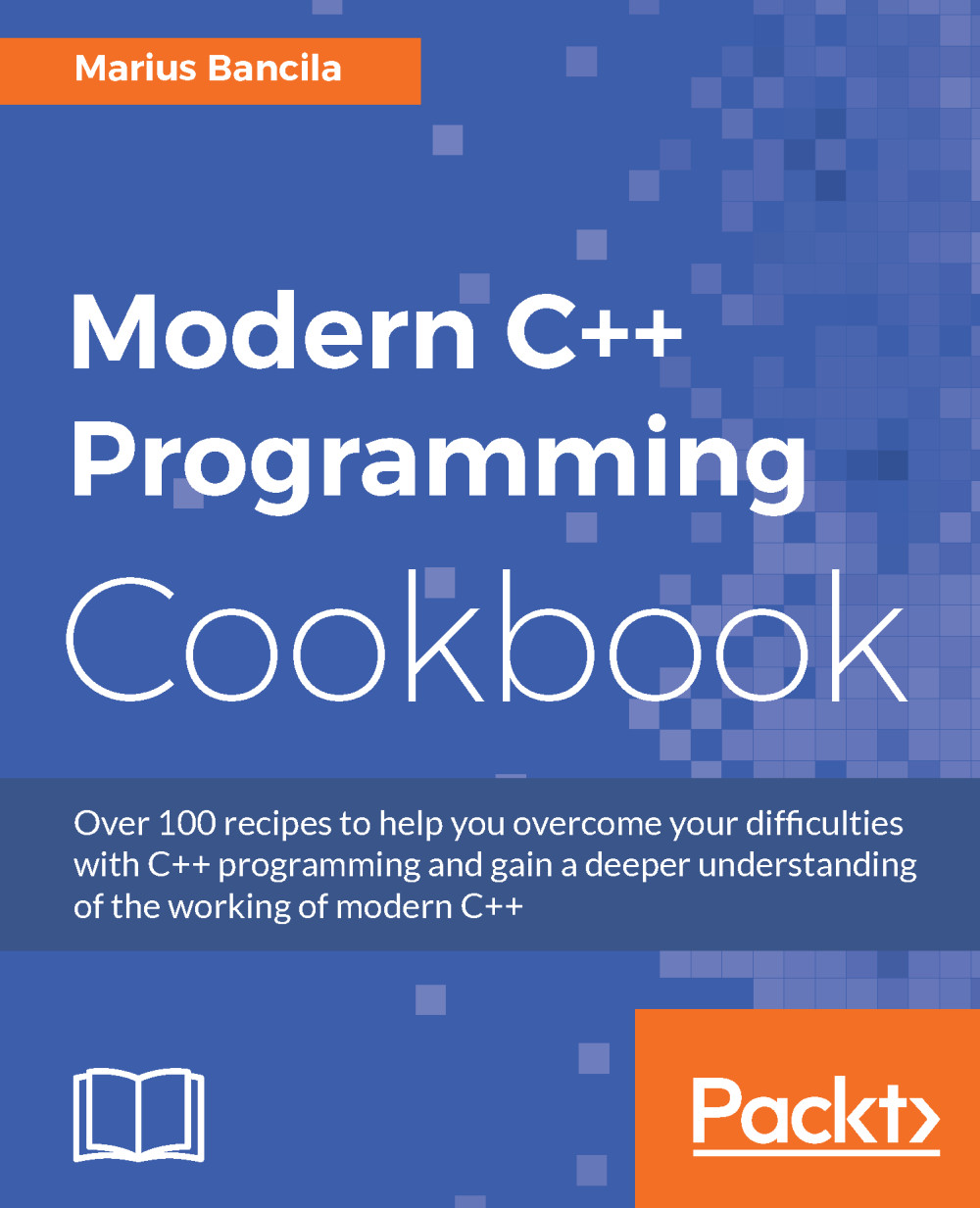-
Book Overview & Buying

-
Table Of Contents

Modern C++ Programming Cookbook
By :

Modern C++ Programming Cookbook
By:
Overview of this book
C++ is one of the most widely used programming languages. Fast, efficient, and flexible, it is used to solve many problems. The latest versions of C++ have seen programmers change the way they code, giving up on the old-fashioned C-style programming and adopting modern C++ instead.
Beginning with the modern language features, each recipe addresses a specific problem, with a discussion that explains the solution and offers insight into how it works. You will learn major concepts about the core programming language as well as common tasks faced while building a wide variety of software. You will learn about concepts such as concurrency, performance, meta-programming, lambda expressions, regular expressions, testing, and many more in the form of recipes. These recipes will ensure you can make your applications robust and fast.
By the end of the book, you will understand the newer aspects of C++11/14/17 and will be able to overcome tasks that are time-consuming or would break your stride while developing.
Table of Contents (13 chapters)
 Free Chapter
Free Chapter
Learning Modern Core Language Features
Working with Numbers and Strings
Exploring Functions
Preprocessor and Compilation
Standard Library Containers, Algorithms, and Iterators
General Purpose Utilities
Working with Files and Streams
Leveraging Threading and Concurrency
Robustness and Performance
Implementing Patterns and Idioms
Exploring Testing Frameworks
Bibliography
